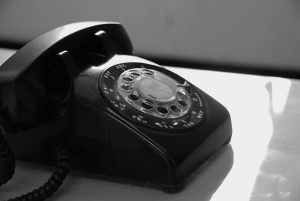As stated on this blog, the Telephone Consumer Protection Act (“TCPA”) was passed into law in 1991 and empowers the Federal Communications Commission (“FCC”) to issue rules and regulations regarding unsolicited telemarketing calls, texts, faxes, pre-recorded calls and autodialed calls. Furthermore, the TCPA allows for private rights of action, which has resulted in several high profile class action judgments of late.
What is an Autodialed Call under the TCPA?
 As described in the TCPA, an autodialed call is a phone call, involving a live person or pre-recorded message, that is placed using an “autodialer,” or automatic telephone dialing system, that can produce, store and call telephone numbers using a random or sequential number generator. As a best practice, we have advised our clients to broadly construe the definition of “autodialed call” to avoid unwanted litigation and regulatory action. For instance, if you are utilizing any type of call center software as part of your telemarketing operations, you may be using an autodialer within the FCC’s definition.
As described in the TCPA, an autodialed call is a phone call, involving a live person or pre-recorded message, that is placed using an “autodialer,” or automatic telephone dialing system, that can produce, store and call telephone numbers using a random or sequential number generator. As a best practice, we have advised our clients to broadly construe the definition of “autodialed call” to avoid unwanted litigation and regulatory action. For instance, if you are utilizing any type of call center software as part of your telemarketing operations, you may be using an autodialer within the FCC’s definition.
Recent Court Case Limits Definition of “Autodialer”
While it is still a best practice to broadly construe the definition of “autodialer” under the TCPA, the U.S. District Court for the Western District of Wisconsin has limited its previously decided definition of autodialer. In a case decided on March 8, 2013 that we previously blogged about, the Western District Court of Wisconsin found that use of telephone equipment capable of placing autodialed calls violates the TCPA (unless prior express consent was obtained), even if the call was placed by a live telemarketer. The telephone system at issue in the case had a “preview” function, which generated telephone numbers and a live telemarketer could choose which number to dial by clicking on a computer screen.
The defendant asserted that the calls to the plaintiff were made by a live person using the preview dialing function of its telephone system, which it claimed are not autodialed calls within the meaning of the TCPA. The Court disagreed, relying on the FCC’s expansive interpretation of the term “automatic telephone dialing system” in finding that “the question is not how the defendant made a particular call, but whether the system it used had the ‘capacity’ to make the automated call.” As a result, the Court awarded the plaintiff $571,000 in statutory damages.
However, on June 7, 2013, the same Court vacated and set aside its prior judgment without explanation. While the Court has remained silent as to its reason for vacating its previous decision, it can be speculated that a phone that merely has the capacity to make an autodialed call is insufficient to create liability under the TCPA. It must be proven that the defendant actually utilized the autodialing capabilities of the phone or device in question.
Whatever the case may be, it is clear that the TCPA has become a hotly contested and complex area of the law. As such, an experienced attorney familiar with the intricacies of the TCPA should be consulted with prior to commencing any telemarketing operation that makes use of a telephone, fax machine or text message.
If you are interested in learning more about this topic or need to review your telemarketing practices, please e-mail us at info@kleinmoynihan.com, or call us at (212) 246-0900.
The material contained herein is provided for informational purposes only and is not legal advice, nor is it a substitute for obtaining legal advice from an attorney. Each situation is unique, and you should not act or rely on any information contained herein without seeking the advice of an experienced attorney.
Attorney Advertising



